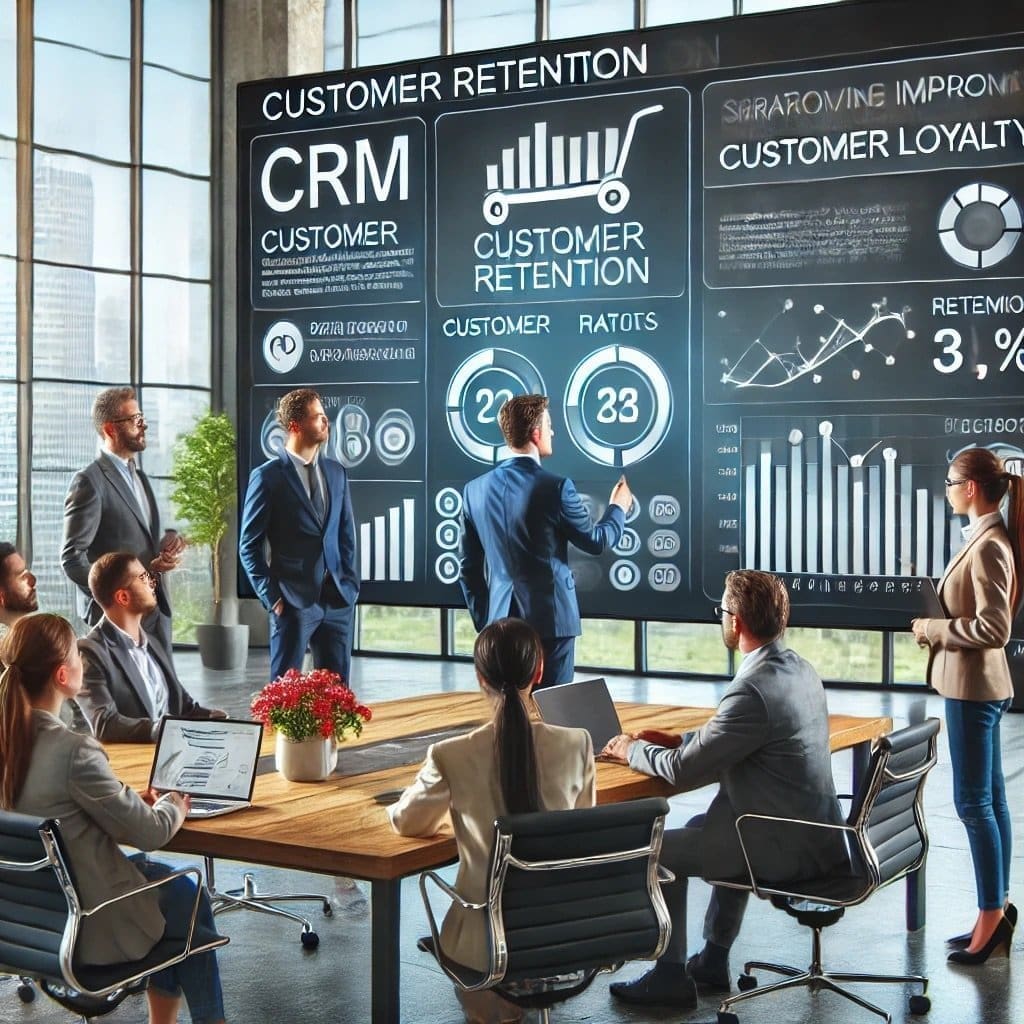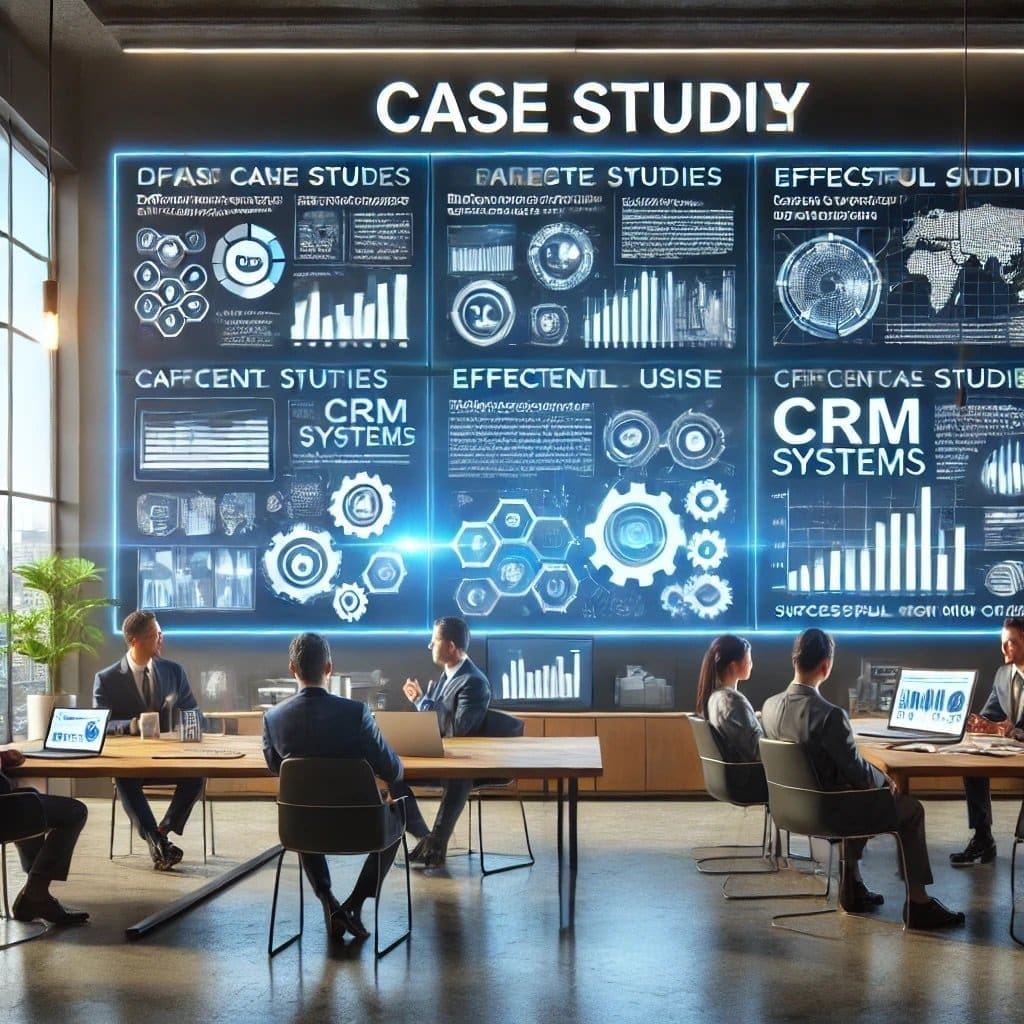Customer retention is vital for the long-term success of any business. It is often more cost-effective to retain existing customers than to acquire new ones, and loyal customers are more likely to make repeat purchases, recommend your brand, and contribute to steady revenue growth. Customer Relationship Management (CRM) software plays a key role in customer retention by helping businesses manage relationships, track customer behavior, and deliver personalized experiences. Here’s how CRM systems can enhance customer retention efforts.
1. Centralized Customer Data
One of the primary functions of a CRM system is to centralize customer information. This includes contact details, purchase history, preferences, and interaction records. Having this data readily available enables businesses to:
• Understand Customer Needs: With complete customer profiles, your sales and support teams can quickly understand each customer’s preferences, previous purchases, and pain points, allowing for personalized interactions.
• Track Customer Behavior: CRM systems capture data on how customers engage with your business across different touchpoints, such as emails, social media, and website visits. This data helps identify patterns in behavior and purchasing habits, allowing you to proactively address customer needs.
By centralizing customer data, CRM systems help businesses stay organized, ensure consistent communication, and maintain a deeper understanding of their customers, all of which contribute to stronger retention.
2. Personalized Communication
Customers expect personalized experiences from brands, and CRM tools make this possible by segmenting customers based on behavior, demographics, and purchase history. This segmentation allows businesses to:
• Send Targeted Offers: Using the data in your CRM, you can send personalized offers, discounts, and promotions based on individual customer preferences and past behavior. This increases the likelihood of repeat purchases and strengthens customer loyalty.
• Automate Follow-Ups: CRMs allow businesses to set up automated follow-up emails, reminding customers of abandoned carts, upcoming renewals, or new products based on their previous interactions.
• Tailored Customer Support: When a customer contacts your business, the CRM provides your support team with all the relevant information, allowing them to address issues quickly and with a personal touch. Personalized, timely responses contribute to higher customer satisfaction and retention.
Personalized communication fosters trust and makes customers feel valued, increasing the likelihood of continued engagement.
3. Customer Journey Tracking
A CRM system tracks every stage of the customer journey, from initial contact to post-purchase engagement. This holistic view helps businesses:
• Identify Opportunities: By analyzing customer journeys, you can identify opportunities to upsell, cross-sell, or re-engage customers who may be losing interest.
• Anticipate Needs: CRMs track when customers typically make repeat purchases or need service renewals, enabling you to reach out proactively and ensure their needs are met.
• Optimize Customer Experiences: CRM data reveals friction points in the customer journey, such as delays in service or product delivery, enabling businesses to address issues and improve the overall customer experience.
Tracking the entire customer journey ensures that businesses can anticipate and meet customer needs at every touchpoint, which helps maintain loyalty and reduce churn.
4. Improved Customer Service
Providing excellent customer service is key to retention, and CRM systems enhance service by equipping support teams with the tools and information they need to resolve issues quickly.
• Case Management: Many CRM systems include case management features, allowing support teams to track customer issues from start to resolution. This ensures that no issue is overlooked and that customers receive timely responses.
• Customer Support History: CRMs store all past interactions with customers, enabling support teams to pick up where they left off without the customer needing to repeat themselves. This seamless experience contributes to higher customer satisfaction.
• Knowledge Base Integration: Many CRM platforms integrate with knowledge bases, providing customers with self-service options to resolve common issues. When customers can find answers quickly and easily, they’re more likely to remain loyal.
Fast, personalized customer service is essential for retaining customers, and CRM systems enable businesses to deliver that level of support.
5. Loyalty Program Management
CRM systems can also manage loyalty programs by tracking customer points, rewards, and engagement with the program. With CRM, businesses can:
• Reward Loyal Customers: Automatically track customer purchases and apply loyalty points or rewards, encouraging repeat purchases and long-term loyalty.
• Segment VIP Customers: Use CRM data to identify top customers and offer exclusive deals, early access to products, or personalized services to keep them engaged.
• Track Redemption Patterns: CRMs allow businesses to track which loyalty offers or rewards are most popular, helping refine the loyalty program for better results.
Loyalty programs, when integrated into CRM systems, help businesses create a structured approach to rewarding and retaining their best customers.
6. Customer Feedback and Surveys
Another important feature of many CRM platforms is the ability to send customer satisfaction surveys or collect feedback directly within the system. By regularly soliciting feedback, businesses can:
• Gauge Customer Satisfaction: Regular surveys help you understand how satisfied customers are with your products, services, and overall experience.
• Identify Areas for Improvement: Feedback collected through the CRM can highlight areas where your business may be falling short, allowing you to make improvements that can increase customer retention.
• Follow-Up on Negative Feedback: CRM systems allow businesses to track customer feedback and follow up with those who report negative experiences, giving you an opportunity to resolve issues and win back unhappy customers.
Customer feedback is essential for identifying potential problems and improving the customer experience, both of which contribute to better retention.
7. Automation of Retention Strategies
CRM systems offer automation tools that make it easier to implement and scale retention strategies. By automating key retention activities, businesses can ensure they maintain consistent communication and engagement without manually managing every touchpoint.
• Automated Email Campaigns: CRMs can send personalized emails based on customer behavior, such as post-purchase thank-yous, renewal reminders, or follow-up surveys.
• Re-Engagement Campaigns: Use CRM automation to reach out to customers who haven’t interacted with your brand for a while, offering incentives to re-engage them before they churn.
• Post-Sale Engagement: Automatically send follow-up messages after a purchase to check on customer satisfaction and offer additional support if needed.
Automating these processes ensures that no customer is overlooked, and every customer receives consistent attention, contributing to better retention rates.
Conclusion
Customer retention is crucial for business growth, and CRM systems are a powerful tool for managing customer relationships, providing personalized experiences, and ensuring long-term loyalty. By centralizing customer data, tracking the customer journey, and automating retention strategies, businesses can build stronger relationships with their customers and create more opportunities for repeat business. In today’s competitive market, effective CRM use is essential for keeping customers engaged and loyal.



12 comments